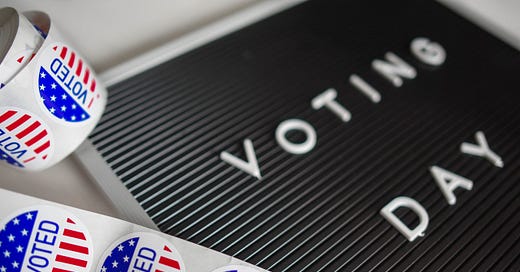Analyzing the spring election
Was Tuesday a win for area conservatives? Yes, but for different reasons than I initially expected
Both my City Pages and Wausonian stories declared the spring election largely a victory for conservatives. I wondered a bit how this would be received.
Would it look like cheerleading? Or the opposite of that? I assure you neither. If anything depresses me, it’s that partisan politics found their way into local elections. But otherwise I consider myself an objective spectator. In the spirit of baseball season, I’m just here to call balls and strikes and the occasional close play at the plate.
An important caveat I need to start with: Yes, local elections such as city council, county board, school board are all non-partisan. But political movements are backing candidates with clear partisan agendas on both sides of the aisle. They might as well have an R or a D after their names. Whether they want it or not.
But, that’s also not to say that there is clear legibility here. After speaking with John Kroll, for instance, I’d have a hard time labeling him anything close to conservative. Yet, he was snubbed by the Community For All list and added to some conservative lists. Or in some cases he was included in a dual endorsement.
The same could be said of Ricky Cveykus. After sitting down with him for nearly an hour, I could tell he wasn’t kidding about wanting nothing to do with partisan politics. He also got a dual endorsement with William Harris on some lists.
But I decided to question my own premise: Was it a win for conservatives? My conclusion: Yes, but not in the way I initially thought.
Was the spring election a conservative win?
Some interesting things happened this year that were unusual compared to most years. One was that there were ballot issues. Two races that looked like they’d be wins for conservatives flipped after more absentee ballots came in. Alyson Leahy, who appeared on liberal checklists, ultimately won over Randy DeBroux by three votes (who appeared on conservative lists) after results initially had it the opposite way. (All precincts were technically counted, but that didn’t count absentee ballots yet.)
This also happened in the city council race between incumbent Deb Ryan and challenger Chad Henke. (Labels again are a bit nebulous here; it feels weird to call Ryan a “conservative” but she did appear on conservative lists.) Henke ultimately won, though we all went to bed thinking the opposite.
That actually puts the count between county board, school board and city council at 10-10. So, a tie?
In terms of pure numbers, sure, but that doesn’t give us the full picture. When we talk about wins and losses in Congress, for instance, net gain and net loss are far more important. Holding a seat is a defense, but not a gain. Flipping an opponent incumbent is a gain. Losing an incumbent seat is a loss.
With that, I put the score as such:
Keep reading with a 7-day free trial
Subscribe to The Wausonian | Independent Wausau News to keep reading this post and get 7 days of free access to the full post archives.




